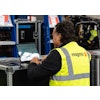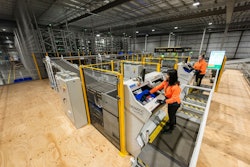
More major retailers have begun imposing real-time data-sharing mandates on their suppliers, a change that has engendered no small amount of skepticism.
Data sharing between retailers and their food and beverage (F&B) partners is hardly new. Supply chain partners have been sending documents like advanced shipping notices via electronic data interchange (EDI) since the 1980s. But this latest push by major retailers for constant real-time data has many partners asking an age-old question: Who can you trust?
Retail suppliers operate on razor-thin margins in a highly competitive market where everyone is trying to protect themselves. Retailers may say that these data sharing mandates will work to everyone’s common good, but suppliers remain understandably leery.
For instance, if the retailer learns who my raw material suppliers are, will they contract with them directly and cut me out altogether?
Will this data be used punitively against me in the form of fines?
Will it be used as leverage to negotiate with my competitors?
These are the kinds of questions suppliers are asking themselves in light of such mandates. In light of contemporary global conflicts and near-constant supply chain disruptions — from the Panama Canal to the Red Sea crisis to increasingly severe weather events —many retailers are looking to technology and automation to help manage through the complexity while avoiding stockouts and spoiled goods.
At the same time, suppliers have every right to think, “I want to support what you're asking of me, but at the same time, I want to make sure that this is absolutely necessary and won’t be used against me.”
There’s no turning back from the digital transformation of the world’s supply chains. Data sharing among ecosystem partners will be pervasive. The sooner everyone accepts that, the sooner companies can start implementing the kinds of changes that can create competitive advantage and value for all parties.
Building greater trust and transparency between trading partners has to be core to these efforts. Here’s how retailers and suppliers can proceed.
Expectation setting. Step 1 for retailers and their suppliers should be frank, in-depth conversations about how information is going to be leveraged. It’s incumbent upon retailers to assuage supplier concerns that data will be used to punish or otherwise disadvantage them. Supply chain partners need to find the win-win.
For example, retailers should freely share demand signals to minimize the risk of suppliers getting stuck with raw materials. Conversely, if a supplier is short on raw materials, a retailer might actually be able to help that supplier by leveraging its buying power on the supplier’s behalf.
Fulfillment requirements. Many F&B suppliers simply weren’t prepared for some of the recent data-sharing mandates. Lacking budget and the requisite IT staff, they are simply unable to comply in the near-term.
Trading partners should have frank discussions around how to bridge the gap. Does the retailer have relationships with technology providers that their suppliers can leverage? Can they share best practices and budget requirements to help suppliers come online? Retailers need to be understanding and flexible with suppliers who need help and time.
Don’t just comply — be a proactive user. It’s critical that suppliers not simply comply with these new data sharing mandates. Rather, use the power of the network and the data for your own operational benefits as well.
Are your transit lead times based on real-time tracking? Do you have the right carrier network that's going to support visibility requirements? Are you putting visibility to use with your inbound operations and your facilities to drive efficiencies?
Everyone stands to win as data sharing becomes widespread across supply chain ecosystems. For retailers, the ability to fine-tune their inventory levels will lead to fewer instances of out-of-stock products and less spoilage, resulting in happier, more loyal customers and a healthier bottom line. Suppliers, meanwhile, will be able to tap into the data to refine their processes, boost productivity, and make informed choices that enhance profitability while cutting expenses.
But first, trading partners will need to trust more and work together.


















